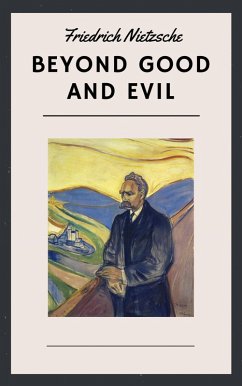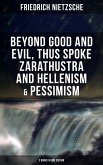"To love one's enemies? I think that has been well learnt: it takes place thousands of times at present on a large and small scale; indeed, at times the higher and sublimer thing takes place:-we learn to DESPISE when we love, and precisely when we love best; all of it, however, unconsciously, without noise, without ostentation, with the shame and secrecy of goodness, which forbids the utterance of the pompous word and the formula of virtue. Morality as attitude-is opposed to our taste nowadays. This is ALSO an advance, as it was an advance in our fathers that religion as an attitude finally became opposed to their taste, including the enmity and Voltairean bitterness against religion (and all that formerly belonged to freethinker-pantomime). It is the music in our conscience, the dance in our spirit, to which Puritan litanies, moral sermons, and goody-goodness won't chime." In "Beyond Good and Evil" Friedrich Nietzsche accuses past philosophers of lacking critical sense and blindly accepting dogmatic premises in their consideration of morality. It was first published in 1886. "Beyond Good and Evil" exposes the deficiencies of those usually called "philosophers" and identifies the qualities of the "new philosophers": imagination, self-assertion, danger, originality, and the "creation of values".
Dieser Download kann aus rechtlichen Gründen nur mit Rechnungsadresse in A, B, BG, CY, CZ, D, DK, EW, E, FIN, F, GR, H, IRL, I, LT, L, LR, M, NL, PL, P, R, S, SLO, SK ausgeliefert werden.










